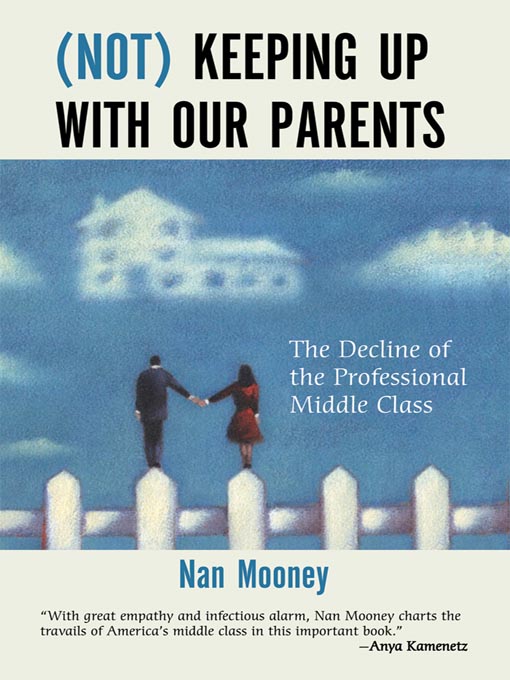The first book to exclusively target the struggles of the professional middle class-educated individuals who purposely choose humanistic, intellectual, or creative pursuits-Nan Mooney's (Not) Keeping Up with Our Parents is a simultaneously sobering and proactive work that captures a diversity of voices.
Drawing on more than a hundred interviews with people all across America, (Not) Keeping Up with Our Parents explores how stagnant wages, debt, and escalating costs for tuition, health care, and home ownership are jeopardizing today's educated middle class. Teachers, counselors, nonprofit employees, environmentalists, journalists, and the author speak candidly about their sense of economic-and hence emotional-security, and their plans and fears about what's to come.
With up-to-date and accessible research, including a short history of the middle class, Mooney explains what it has meant historically to be middle class and how these definitions have changed so dramatically over the decades. She shows that social programs once aided the growth of this class but shifts in policies and labor practices-and increases in fixed costs, such as health care, housing, education, childcare, and household debt-are making it increasingly difficult for families to retain their middle-class status.
Throughout the book, Mooney uses real people's stories and an analysis of the new economic reality to put middle-class struggles in perspective: College tuition has increased 35 percent in the past five years, and while the average college undergraduate's debt is $20,000, earnings for graduates have remained stagnant since 2000. In addition, only 18 percent of middle-class families have three months' income saved, and 90 percent of those filing for bankruptcy are middle class. Finally, raising one child through age eighteen costs a middle-income family around $237,000, while the costs of housing, health care, and education are all rising faster than inflation.
Despite this difficult reality, Mooney offers concrete ideas on how individuals and society can arrest this downward spiral. Reigniting a sense of social responsibility is crucial-this ranges from improving government-backed education, health care, and childcare programs to drawing on successful models from individual states and other countries. Intimate personal accounts combined with Mooney's incisive analysis will make (Not) Keeping Up with Our Parents resonate deeply for America's professional middle class.
From the Hardcover edition.
- Available now
- New eBook additions
- New kids additions
- New teen additions
- Most popular
- Try something different
- New Nonfiction Ebooks
- New Fiction Ebooks
- Stars Cook
- See all ebooks collections
- Available now
- New audiobook additions
- New kids additions
- New teen additions
- Most popular
- Try something different
- See all audiobooks collections
- Home & Garden
- Sports
- Health & Fitness
- Hobbies & Crafts
- Food & Cooking
- Celebrity
- News & Politics
- Travel & Outdoor
- Family & Parenting
- Crafts
- Crafting
- See all magazines collections

